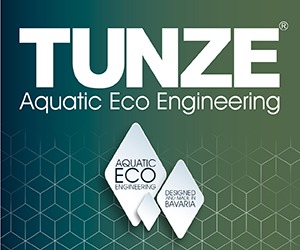 Most of the country is now familiar with hydraulic fracturing (fracking). It’s a method used to extract natural gas buried deep beneath the Earth. Despite some of the jargon that gets passed around, fracking hasn’t been around for 30 or more years. It has been used for around eight, as a means to release natural gas locked in layers of shale rock. I am very familiar with the process as I live in western Maryland which lies over the Marcellus Shale. Right now a war has broken out between those that favor fracturing the shale and releasing the gas and those that believe it will risk resident’s health. In states where fracking has been embraced (NY, WV, PA, TX, CO, etc) the process has become controversial as private water supplies suddenly became filled with chemicals, some even becoming flammable. As I learn more about fracking, I can’t help but wonder what it could mean to reef aquarists anywhere the process is embraced. Even if a clean water supply is available, we still require mass amounts of filtration to create high quality synthetic saltwater. Would it be possible to even maintain a marine aquarium if fracking chemicals leached into an aquarist’s water supply? How would an aquarist know their water had been effected and would you not learn until it was too late?
Most of the country is now familiar with hydraulic fracturing (fracking). It’s a method used to extract natural gas buried deep beneath the Earth. Despite some of the jargon that gets passed around, fracking hasn’t been around for 30 or more years. It has been used for around eight, as a means to release natural gas locked in layers of shale rock. I am very familiar with the process as I live in western Maryland which lies over the Marcellus Shale. Right now a war has broken out between those that favor fracturing the shale and releasing the gas and those that believe it will risk resident’s health. In states where fracking has been embraced (NY, WV, PA, TX, CO, etc) the process has become controversial as private water supplies suddenly became filled with chemicals, some even becoming flammable. As I learn more about fracking, I can’t help but wonder what it could mean to reef aquarists anywhere the process is embraced. Even if a clean water supply is available, we still require mass amounts of filtration to create high quality synthetic saltwater. Would it be possible to even maintain a marine aquarium if fracking chemicals leached into an aquarist’s water supply? How would an aquarist know their water had been effected and would you not learn until it was too late?
What is fracking?
 Fracking combines two processes, horizontal drilling which allows a drill to travel deep beneath the Earth (several thousand feet) and turn horizontally. At this point it enters shale which over millions of years has sealed up natural gas. A round about explanation of natural gas is that it’s decayed organic matter so fermented that it contains all organisms’ original energy harvested from the sun. Since the gas is still sealed up, thousands and thousands of gallons of water and chemicals is pumped into the shale at high pressure. The chemicals, along with sand, help break up the shale rock and release the gas. The now toxic water is pumped back out of the ground and into a containment pond.
Fracking combines two processes, horizontal drilling which allows a drill to travel deep beneath the Earth (several thousand feet) and turn horizontally. At this point it enters shale which over millions of years has sealed up natural gas. A round about explanation of natural gas is that it’s decayed organic matter so fermented that it contains all organisms’ original energy harvested from the sun. Since the gas is still sealed up, thousands and thousands of gallons of water and chemicals is pumped into the shale at high pressure. The chemicals, along with sand, help break up the shale rock and release the gas. The now toxic water is pumped back out of the ground and into a containment pond.
Fracking is a high tech process that utilizes a variety of equipment. It combines sciences like geology, chemistry and engineering. People familiar with the practice have equated it to rocket science, since there are many variables along with a host of unforeseen circumstances. Even after years of practice, it’s still very much a learning process with a large margin of area. Mistakes and unintended consequences lead to tainted water and even seismic disturbances such as earthquakes.
How does it affect water?
 Fracking fluid is toxic, there is no question about that. It contains a plethora of noxious chemicals, one of which being flammable methane gas. During the Bush Administration something called the Halliburton loop-hole made fracking fluid exempt from the Safe Drinking Water Act. Even though it’s called the Safe Drinking Water Act, any act that protects the quality of water is something marine aquarists shouldn’t take lightly. This exemption gives natural gas extraction companies a lot of leeway when storing, moving or discarding toxic fracking fluid. Usually this toxic fluid would require testing, inspection of storage ponds and a very careful analysis of its potential effect on water supplies. What has occurred in states were fracking has been embraced is a complete destruction of the aquifer due to contamination with fracking fluid.
Fracking fluid is toxic, there is no question about that. It contains a plethora of noxious chemicals, one of which being flammable methane gas. During the Bush Administration something called the Halliburton loop-hole made fracking fluid exempt from the Safe Drinking Water Act. Even though it’s called the Safe Drinking Water Act, any act that protects the quality of water is something marine aquarists shouldn’t take lightly. This exemption gives natural gas extraction companies a lot of leeway when storing, moving or discarding toxic fracking fluid. Usually this toxic fluid would require testing, inspection of storage ponds and a very careful analysis of its potential effect on water supplies. What has occurred in states were fracking has been embraced is a complete destruction of the aquifer due to contamination with fracking fluid.
 Sadly fracking fluid isn’t the only thing tainting water during the process. In shale rock there are harmful gases locked away as decomposition broke down organic matter over millennia. These gases can rise up a natural gas well and if the well isn’t properly sealed (or the seal breaks down) they end up in the aquifer. To protect them from entering the aquifer natural gas extractors line the well with cement casing. Over time that cement breaks down, or it isn’t poured correctly in the first place. Once this happens, that gas is free to move into the aquifer, constantly pouring in and contaminating vast basins of formerly clean water. There are areas where natural gas exploration has left the water supply utterly useless, with residents requiring large water buffalos on site which require constant filling with water brought in from out of the area. There is no filtration method available to aquarists that would remove fracking contaminants and all of them would destroy any organism in a marine aquarium very quickly.
Sadly fracking fluid isn’t the only thing tainting water during the process. In shale rock there are harmful gases locked away as decomposition broke down organic matter over millennia. These gases can rise up a natural gas well and if the well isn’t properly sealed (or the seal breaks down) they end up in the aquifer. To protect them from entering the aquifer natural gas extractors line the well with cement casing. Over time that cement breaks down, or it isn’t poured correctly in the first place. Once this happens, that gas is free to move into the aquifer, constantly pouring in and contaminating vast basins of formerly clean water. There are areas where natural gas exploration has left the water supply utterly useless, with residents requiring large water buffalos on site which require constant filling with water brought in from out of the area. There is no filtration method available to aquarists that would remove fracking contaminants and all of them would destroy any organism in a marine aquarium very quickly.
What would reefing in a fracked area be like?
 Keeping a marine aquarium in or around a fracked gas well would be a constant concern. Well casing leaks or leeching fracking fluid can take time to occur even if safety protocol is followed. Since there is often no inspection of water quality around fracking, it would be hard to determine if it had happened. Each water change, top-off or anytime water from a water supply was used on your reef, it would be a game of Russian roulette. If any chemicals from the process were present in the water, your reef would likely cease to exist.
Keeping a marine aquarium in or around a fracked gas well would be a constant concern. Well casing leaks or leeching fracking fluid can take time to occur even if safety protocol is followed. Since there is often no inspection of water quality around fracking, it would be hard to determine if it had happened. Each water change, top-off or anytime water from a water supply was used on your reef, it would be a game of Russian roulette. If any chemicals from the process were present in the water, your reef would likely cease to exist.
If something did occur and was documented, then imagine keeping a reef without a water supply. No reverse osmosis unit, no filtration device, nothing would remove toxic chemicals from your water supply. The only option would be to buy all your water from a store or use only natural seawater sold at aquarium outlets. Neither is very feasible. Purchasing bottled water would carry a tremendous expense and aquarists would be limited as to how they can filter water prior to mixing it for use in a reef. Natural seawater is very expensive, commanding 15-20 dollars for a scant five gallons. Depending on your tank size, a water change could cost several hundred dollars. In fact, if you were living in an area with active hydraulic fracturing nearby, it would be ill advised to use your water supply on your marine aquarium for any reason.
Marine and reef aquariums demand pure water and then require that it be made even better. Once water is in circulation, it’s a constant effort to maintain it at the highest possible quality. The chemicals that contaminate water during fracking would be impossible for aquarists to remove, rendering a water supply useless. For some the first sign that something was wrong began when their water was emitting a strong odor.
What can aquarists do?
 Sadly we are a very small minority in the debate about fracking. Here in the area of Maryland I live, there might be a dozen or so reef keepers out of a population of 30,000. It’s important to note that fracking effects freshwater aquarists as well. The chemicals that overtake water would wreak equal havoc on a freshwater tank. If you live in an area where fracking is being proposed or actively taking place, it’s important to get involved with concerned citizens and contact your state’s representatives. Here in western Maryland, it’s a coalition of private citizens, business owners and scientists that stand between fracking and our right to clean water. I am not aware of any organized, nationwide coalition of aquarists against fracking, but establishing one wouldn’t be a bad idea. Fracking could affect an aquarist even it doesn’t take place where you live. Imagine if a facility such as Dr. Foster and Smith’s diver’s den or Quality Marine’s wholesale warehouse no longer had access to clean water.
Sadly we are a very small minority in the debate about fracking. Here in the area of Maryland I live, there might be a dozen or so reef keepers out of a population of 30,000. It’s important to note that fracking effects freshwater aquarists as well. The chemicals that overtake water would wreak equal havoc on a freshwater tank. If you live in an area where fracking is being proposed or actively taking place, it’s important to get involved with concerned citizens and contact your state’s representatives. Here in western Maryland, it’s a coalition of private citizens, business owners and scientists that stand between fracking and our right to clean water. I am not aware of any organized, nationwide coalition of aquarists against fracking, but establishing one wouldn’t be a bad idea. Fracking could affect an aquarist even it doesn’t take place where you live. Imagine if a facility such as Dr. Foster and Smith’s diver’s den or Quality Marine’s wholesale warehouse no longer had access to clean water.
Property rights is a quoted reason fracking should occur in any given area. If a property owner has a resource on their property, then they should without question be order to capitalize on that revenue. While that may be correct, it’s important to consider that their right to capitalize on that resource should not destroy another’s right to enjoy their property and be kept safe. For example, if an aquarist owned 1.5 acres of land, neighboring a 10 acre parcel in a fracking area, the 10 acre parcel’s owner may elect to lease their land to a gas company (often 10 acres is the minimum property amount considered for a lease). If a well was placed on the 10 acre parcel, it would be highly probably that it could affect the aquarist’s water quality, making it impossible to keep a marine aquarium. In this instance, one property owner’s rights have totally overtaken another’s. While the water may still be suitable for some uses, this aquarist can no longer pursue their passion for marine aquariums and has suffered a potentially upsetting defeat. Where once water existed that could maintain a healthy marine tank, now there is water that would wipe it out. If you’re an aquarist in an area that’s been fracked, or is being considered for fracking, feel free to email me [email protected] and perhaps we can all work together. Right to clean water walks hand in hand with our right to reef.









Great article! When I first learned that “Halliburton loop-hole” made chemicals used in fracking exempt from the Safe Drinking Act, it became pretty clear to me that the fracking fluid must be full of nasty, unsafe toxins that the gas industry tries hard to keep away from a public eye. It’s unbelievable how much human greed can overshadow ones empathy towards other people. Every other heavy industry is required to test water that is used and reintroduced back into the ecosystem, why isn’t fracking? I feel sorry for you Jeremy and others who have the misfortune of living on top of shale and being exploited in the sake of short term profit. I hope you win your fight!
I am absolutely SHOCKED that Halliburton would have gotten a sweetheart deal during the Bush admin. (sarcasm)
Pure garbage Mr. Gosnell. You really don’t know what you are talking
about. Ever see the fluids 2 miles under the surface. These natural
deposits contain heavy metals, chemical salts and yes natural gas and
oil. Quite a poisonous cocktail on its own. This material never mixes
with potable ground water in the first 2000 feet from the surface nor
would any fluids injected during the extraction process.. Modern wells
have massive steel and concrete linings to prevent this and I do not
think you can give the readers ONE instance of documented contamination
of ground waters by the fracking process. Fracking is no more hazardous
to the environment than any well drilling. The EPA, no friend to the oil
industry, has investigated hundreds of such claims concerning fracking
and have never found one instance of the ground water contamination. As
to the idea of methane gas polluting private wells. Methane has, on rare
occasion entered water wells just as it vents to the surface. I is a
natural occurrence that was happening before Mr Drake drilled his first
well in Pennsylvania in the 1850s. It has nothing to do with fracking.
RJ
Mr. Allen – there are ample studies linking well water contamination to fracking. Here are a few:
http://thinkprogress.org/climate/2014/09/15/3567369/fracking-water-contamination-casing/
http://www.huffingtonpost.com/news/fracking-water-contamination/
The second link ties into a host of articles. Fracking and water contamination have been the subject of documentary films, investigative reports, etc. You are correct that the EPA has looked into fracking, although the Halliburton Loophole I mentioned along with other provisions have essentially tied the EPA’s hands when trying to tie fracking with well water contamination. The illustration in the article along with a host of other documentation shows how toxic chemicals can enter the aquifer during fracking. To suggest that drilling a natural gas well using horizontal drilling and hydraulic fracking is as safe as drilling a drinking water well is outlandish. They are two very, very different processes intended for two very different purposes. I am aware that hydro-fracking is used to increase the gallon per minute flow of water wells, but this process involves water that isn’t treated with any chemicals. I should know, my home’s well is a hydro-fracked well.
Methane contamination has been argued by gas companies as a natural occurrence, in instances it suddenly occurred in natural water supplies after fracking began. It is up for tremendous debate as to if all occurrences of methane contamination near fracking sites are natural. Since the Halliburton Loophole exists it’s essentially impossible for the EPA, or any agency, to document a case of well water contamination due to fracking as gas companies do not have to disclose (even in court) what chemicals make up their fracking fluid. Yes, some fracking sites use steel casing to line the wells, others use only concrete. The concrete has a history of failure and there are mixed reports on how well the steel casing functions. Given your zeal for fracking and the arguments you make, which mirror those provided by gas companies exploring the area I live, I would make the gross assumption that you work within the natural gas industry.
“I would make the gross assumption that you work within the natural gas industry.”
You would be wrong, in fact, until four years ago, I had never even lived in an oil production region. I work in the food service industry. I do have individuals and companies in the oil industry and have spent much time talking, studying and researching about the boom and the industry. There are issues, in fact I believe North Dakota has been too permissive about some issues. Pipe line construction, pad spills, gas leaks and accidents, disposal of waste water and fluids and damaged roads and damage to personal property [fields, fences, private roads] are issues. In the last four years, there has been significant improvement but there is room for more.Some companies seem to do a very good job with the above, but others, no so much. Again, I am not directly connected to any oil company or their contractors nor am I a “cheerleader for the industry.
When I came to North Dakota, I had a lot of questions about directional/ horizontal drilling and fracking. Before, 2010 I was in the financial services industry. I got to know a bit about the oil industry from research for investment clients.
” Fracking and water contamination have been the subject of documentary films, investigative reports, etc. You are correct that the EPA has
looked into fracking, although the Halliburton Loophole I mentioned along with other provisions have essentially tied the EPA’s hands when
trying to tie fracking with well water contamination.”
This is the core of my contempt. There political agendas surrounding fracking as large as the Great Barrier ReeF” You cannot simply watch a Michael Moore Movie and become an expert about Fracking.
http://thinkprogress.org/clima…
http://www.huffingtonpost.com/…
MY my! These sites certainly have no political issues do they ?
To suggest that drilling a natural gas well using horizontal drilling and hydraulic fracking is as safe as drilling a drinking water well is
outlandish.
I was talking about any conventional GAS or OIL. In fact any drilling of any deep well [research projects deep water well or disposal wells] all have some risk if not properly constructed can pollute. They water table. Have first hand experience as I have seen pollution of the aquifer in North Florida polluted my water wells. Have observed the damage in the Keys from core drilling of the reef structure for a research project.
Mr. Gosnell, I have seen many man caused pollution issues. I am sure you will agree with me that some of our reefs are being loved to death. There are real environmental issues in which we would have common ground.
Evidence of ground water pollution does not depend on knowing the exact formulations of fracking fluids. Have you ever seen these fluids? I have seen the real thing. There is NO SMELL of sulfur or methane. The wells do stink and can leak poisonous gases if there is an equipment failure. There is NO REQUIREMENT FOR HAZARDOUS MATERIAL signage when packaging or transporting fracking material. I even watched a fracking technician swirl the fluid in his mouth. There are signage requirements, as well as training in the use of respirators if you work on a well pad, during drilling or during production phases. There is no such requirement for handling fracking fluids away from the drilling platforms.
Sand is the largest component of what is pumped down a well. Detergents are used. That much I know. Again, there has never been a case if ground water pollution from fracking. Deep subsurface fluids including water, petroleum, heavy metals have very very little exposure to the shallow ground water aquifers. They are separated by many 1000s of feet of rocks with different porosity and densities.
Your methane water well contamination screen shot, I believe, comes from an investigation in which state and federal investigators could not reproduce at the same home. I read of one similar incident where the investigating team found a valve cut into the house’s copper water line. The valve’s connection matched a fitting on a propane cylinder found in the home’s garage.
It is my great sorrow that the environmental movement has become so politicized. I imagine you can guess my stand on man caused climate change. Good luck to you and I strongly suggest the owners of this site get back to marine reef keeping
RJA
Mr. Allen again you can discredit the information I’ve provided, but there are other news sources with the same reports. I’ve found that when entering into a fracking debate with anyone, you can never provide evidence that is good enough. This is most certainly an issue that concerns marine aquarists. Access to clean water is vital to our ability to keep marine organisms, that goes without question. To try to discredit a body of evidence suggesting fracking (whether it be fluids or otherwise) has the potential to contaminate water. The state of New York banned the process after a public health study. To bring things back to the topic of marine aquariums, it would be of major concern to any marine aquarist in an area where fracking was occurring. If heavy metals or chemicals entered a water supply unknown to the aquarist, imagine the trauma of losing an entire system. You are welcome to believe whatever you like about climate change, fracking or anything else. What I’ve done is bring aquarist’s attention to a very important matter that could easily effect their ability to maintain a healthy marine ecosystem. Furthermore, I’ve used credited sources in the formation of this article, whether or not you feel they have a political bend. In fact news outlets from the Washington Post to Baltimore Sun on down through many others have covered the potential impacts of hydraulic fracking. Whether it is fracking or any other industrial process, it’s hard to argue that access to clean water is imperative for reef keepers. I find it equally imperative that they be educated about a process that may effect them, should a gas company arrive at their door. Knowing this process could effect your ability to maintain a reef aquarium could allow a marine aquarist to make an informed decision.
News articles from left leaning papers [atually all NEWS sources right or left] should only be a starting points. All sources, including pro fracking sources should be evaluated as to agenda. Someone will now refer to your post as a source now even though is is just a rehash of the same old fears and conjecture and the drumbeat goes on. It is very clear the left hates the internal combustion engine and anything that gives oil a new life will be attacked. Come on, examine your own motivations. The funny thing is many on my side are not against alternate energy sources and believe when they become truly viable alternatives, I am sure some will, this new energy will greatly improve our society. On the other hand, others see such advancements as fracking “bad” because they prevent or delay the movement of industry to adoption of these other energy sources. The needs of individuals, society, economy, our country must be subordinated by governmental decrees and regulation. Debate must be eliminated. Person with other views be marginalized from society. Sir, not all scientists agree with these views.
Fracking and development of shale oil is a 30 year old dream. It works and gives us breathing space. Time to make a transition to other energies, freedom from oil/ gas imports and a better economy.
As to your stated reason of warning reef keepers, I live in the heart of the largest center oil fracking based oil development and production in the world. My 120 tank is doing just fine with RODI filtered city chloramine water. Recently, two pipeline breaks have polluted the Missouri River [source of my city water]. I have been in close contact with the water department. They have made available detailed source and product test reports. I can get updates on a weekly basis. I see no evidence of elevated petro-chemical levels from any source. I am far more concerned from the somewhat elevated levels of nitrates from agriculture run-off.
I have a mixed reef with acropora and other sps corals as well as lps and some soft coral. If my alkalinity and calcium stay at stable levels my tank does very well. While oil spills do concern me, fracking pollution does not. Sir, I submit you are just a young priest to your eco-religion, seeking converts for worship at your green altar. Please to not assume the cloak of objectivity. You are definitely a partisan about this issue. You have a right to voice and write about your OPINIONS. I just want to supply additional information for the readers here. Thank you for your time.
RJ
Mr. Allen I have nothing against the energy industry. In fact, I embrace the energy industry as all of my occupations and hobbies are dependent on energy availability. There are a variety of variables that influence my feelings that hydraulic fracturing isn’t a good fit here in Maryland, but as you said, this website pertains to marine aquariums and that’s where I will keep any conversation. Over the past few years I have read numerous reports, attended various conferences and spoken with state legislators about hydraulic fracturing. These include conversations with a friend of mine who works for the EPA. In fact, I spent a lot of time discussing it with Lodge Gas company as they sought to develop my families’ farm. I’ve learned quite a bit about the process from people who live near fracking sites, gas company geologists, chemists and scientists and medical professionals. It is my opinion, based on the evidence I have seen, both for and against fracking – that this process could pose a risk to private water supplies. By private water supplies I mean private wells that serve as a properties’ water source. Since I believe based on evidence it can pose a risk to clean water access, I feel it’s imperative that aquarists be exposed to that evidence allowing them to make an informed decision. Many aquarists who visit this website and follow aquaria publications are deeply invested in their aquariums. A risk to their ability to keep a healthy aquarium posed by an industrial process is something I feel they have a right to learn more about. Knowing this could potentially risk a clean water supply may influence their decisions were a gas company representative to appear at their door (as they did mine) offering a land lease. I am certainly not the only person who has a less than favorable view of hydraulic fracturing. I certainly don’t feel that taking a skeptical approach to a highly industrialized process should condemn me to being marginalized from society nor do I feel that every news source that reports on water contamination linked to fracking is leftist nor that the left leaning folks hate the combustion engine. These are the same type of conjectures you have accused me of making with this article. I still would encourage any marine aquarist who lives in an area where fracking is proposed to seek out information, speak with experts (including health professionals) and not simply take what they are told by the gas industry as absolute fact.
We have had our say and I think the space here is better spent talking about reefs, fish, coral and aquariums. Most of my clients are in the country here in North Dakota and Montana. I visit more than 1000 homes over 1 month as well as businesses, government buildings etc. In the last 4 years no one over a 8 county area has had an issue with well contamination. One farm thought they had an issue and mentioned the possibility as they had a drilling operation less than a 1/2 mile from their home. It proved to be another issue that had to do with their well equipment. In the course of a day, I pass 100s of producing well sites and always a few under development. Some well site pads have up to 4 lift pumps. The size of these pumps are huge, much larger than I have seen back east. I have seen many issues as I have related but NEVER water well pollution of any kind. The local oil well companies regularly pay to have 3rd party testing for home sites adjacent to their leases. The choice of testing facilities are up to the home owner. I don’t know if this is a part of the lease agreement or out of the company’s public relation department, but is rather common. Ground water in this area can be very alkaline and most don’t drink it but the animals do and the farmers test as a matter course.
Anyway, I’m done on this issue.
RJ
–